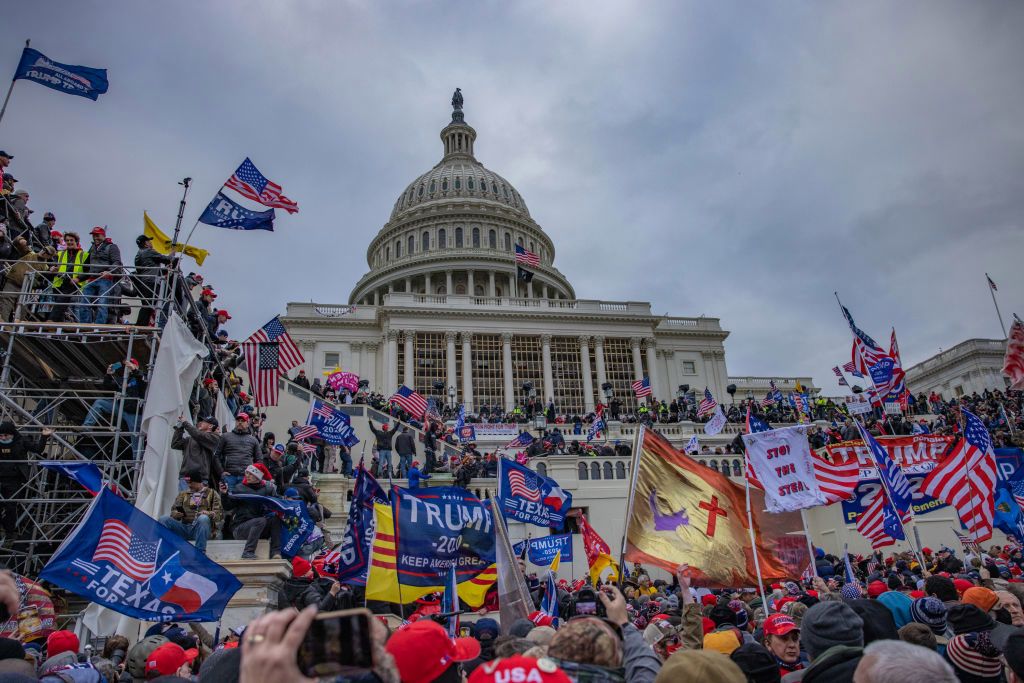Major Civil Rights Orgs Caution Against Expanding Domestic Terrorism Laws

Source: The Washington Post / Getty
This week,135 civil and human rights organizations wrote members of congress asking they resist the urge to pass new domestic terrorism legislation. Led by the NAACP Legal Defense Fund and the Leadership Conference on Civil and Human Rights, the groups pointed to issues with prior counterterrorism efforts, including the criminalization and targeting of marginalized communities.
A new domestic terrorism statute or list could adversely impact civil rights. As America’s disturbing history has shown, new authority could be used to expand racial profiling or surveil communities of color & political opponents in name of national security.
This cannot happen.
— The Leadership Conference (@civilrightsorg) January 19, 2021
Calls for new domestic terrorism legislation surfaced after the Jan. 6 Capitol attack. President Joe Biden named defeating domestic terrorism as a part of his administration’s top priorities. But the groups say this issue is not new and law enforcement, including the FBI, have existing laws to address the recent attack.
“The government’s inadequate response to rising white nationalism is a disgraceful policy failure. The problem is hardly new, and prosecutors have long had a multitude of criminal statutes at their disposal to confront white supremacist violence,” said Wade J. Henderson, interim president and CEO of The Leadership Conference on Civil and Human Rights.
Sherrilyn Ifill, president and director-counsel of the NAACP Legal Defense and Educational Fund said the Jan. 6 coup attempt was an example of the enduring presence of white supremacy in society as well as law enforcement. “Violence perpetrated by white supremacist groups has been allowed to increase because federal law enforcement officials have chosen not to enforce the investigatory and prosecutorial statutes already in place,” explained Ifill. “What we do not need is for Congress to undertake an unnecessary expansion of federal domestic terrorism statues that will inevitably threaten the civil rights of Black communities and other communities of color.”
Civil and human rights groups pointed to the FBI’s data showing an increase in white nationalist violence. A renewed focus on preventing such violence must also contend with the way law enforcement entities target and exploit surveillance practices in communities of color. From COINTELPRO to 9/11, communities of color have been targeted through expanded racial profiling practices, including surveillance programs.
Last year, the FBI named “racially-motivated violent extremists” as a priority, including white supremacists. Not surprisingly, the designation has also been used by the FBI to investigate Black activists after it was pressured to drop the Black Identity Extremist designation. Media Justice and the ACLU’s Racial Justice Program pressed the FBI to respond to freedom of information act (FOIA) requests concerning the use of such designations.
Anoa Changa is a movement journalist and retired attorney based in Atlanta, Georgia. Follow Anoa on Instagram and Twitter @thewaywithanoa.
SEE ALSO:
Trump’s 1776 Commission Is A White Supremacist’s Revisionist Dream
All Hell Breaks Loose At The Capitol While Congress Counts Electoral College Votes
[ione_media_gallery id=”4074089″ overlay=”true”]

